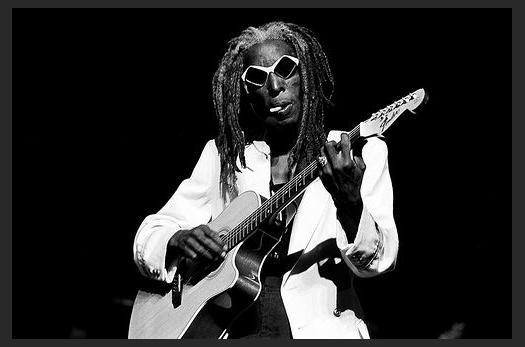 Itamar Assumpção
Itamar Assumpção
Itamar Assumpção: The Enigmatic Genius of Brazilian Music
Emerging from the vibrant streets of São Paulo, Itamar Assumpção left an indelible mark on Brazilian music with his unconventional lyrics, haunting melodies, and distinctive persona.
Early Years and Influences
Born in 1949, Itamar Assumpção's musical journey began at a tender age. Influenced by the rich Brazilian folk tradition, samba, and the avant-garde sounds of the Tropicália movement, he forged his own unique style that defied categorization.
Challenging Conventions
Assumpção's music was marked by its raw, experimental nature and provocative lyrics. He challenged societal norms and questioned the status quo, often through incisive political commentary. His songs delved into themes of love, loss, and the human condition, exploring the darker corners of the soul with unflinching honesty.
Controversies and Censorship
Assumpção's outspoken nature and subversive lyrics often drew controversy. He faced censorship during Brazil's military dictatorship, and some of his concerts were banned. Undeterred, he continued to express himself through his music, becoming a symbol of resistance and free expression.
Discography and Collaborations
Over his prolific career, Assumpção released numerous albums that showcased his eclectic range. From his early collaborations with the band Banda Aberta to his later solo works, his music covered a wide spectrum of genres, from samba to jazz to experimental electronica. He also collaborated with renowned artists such as Caetano Veloso and Gilberto Gil.
Band Members and Legacy
Itamar Assumpção assembled a diverse group of musicians who shared his vision and musical sensibilities. Key members included Zeca Assumpção (bass), Chico Assumpção (percussion), and Sérgio Sampaio (guitar). Together, they created a unique and cohesive sound that left a lasting impression.
Assumpção passed away in 2003 at the age of 54, leaving behind a legacy of challenging, thought-provoking, and emotionally resonant music. His songs continue to inspire and resonate with audiences today, proving his enduring influence on the Brazilian music landscape.
Emerging from the vibrant streets of São Paulo, Itamar Assumpção left an indelible mark on Brazilian music with his unconventional lyrics, haunting melodies, and distinctive persona.
Early Years and Influences
Born in 1949, Itamar Assumpção's musical journey began at a tender age. Influenced by the rich Brazilian folk tradition, samba, and the avant-garde sounds of the Tropicália movement, he forged his own unique style that defied categorization.
Challenging Conventions
Assumpção's music was marked by its raw, experimental nature and provocative lyrics. He challenged societal norms and questioned the status quo, often through incisive political commentary. His songs delved into themes of love, loss, and the human condition, exploring the darker corners of the soul with unflinching honesty.
Controversies and Censorship
Assumpção's outspoken nature and subversive lyrics often drew controversy. He faced censorship during Brazil's military dictatorship, and some of his concerts were banned. Undeterred, he continued to express himself through his music, becoming a symbol of resistance and free expression.
Discography and Collaborations
Over his prolific career, Assumpção released numerous albums that showcased his eclectic range. From his early collaborations with the band Banda Aberta to his later solo works, his music covered a wide spectrum of genres, from samba to jazz to experimental electronica. He also collaborated with renowned artists such as Caetano Veloso and Gilberto Gil.
Band Members and Legacy
Itamar Assumpção assembled a diverse group of musicians who shared his vision and musical sensibilities. Key members included Zeca Assumpção (bass), Chico Assumpção (percussion), and Sérgio Sampaio (guitar). Together, they created a unique and cohesive sound that left a lasting impression.
Assumpção passed away in 2003 at the age of 54, leaving behind a legacy of challenging, thought-provoking, and emotionally resonant music. His songs continue to inspire and resonate with audiences today, proving his enduring influence on the Brazilian music landscape.